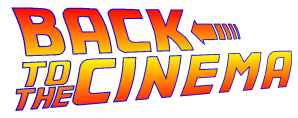
Set in a seaside village of a remote volcanic-like island the film shows a small community that seems to consist entirely of adult women each taking care of one young boy. The young women gradually appear to be more guards than guardians and more caretakers than caring. The children are given medicine to drink to so-called to strenghten themselves eventhough they are not ill. Director Lucile Hadzihalilovic focusses on one of these boys called Nicolas who discoveres the body of a young boy on an otherwise idyllic looking bottom of the ocean. The adults do not appear too alarmed, his mother (?) dives down at the same spot only to find the bright red starfish the boy said marked the dead body and do not seem to hold any further credibility to his story.
Made up more out of cryptic elements and taking a purely visual approach to storytelling (rather than a more classic form of dramatisation) the film immerges you in a moody and atmospeheric cinematic trip mixing the beautiful with the horrific. Small details have a maximum effect such as the bleached eyebrows of the mothers and the lightgray outfit they share make them look extremely similar and thus interchangeable The approach chosen leaves a lot of room for interpretation that some may find exilharating and others frustrating.
The film forms a perfect companion piece to Hadzihalilovic’s debut Innocence (2004). She likes to start her films under water, in Evolution the water appears to be a symbol of the origin of life. Both films focus their attention on the world as experienced by children, girls in the case of Innocence and boys in Evolution and seem to share a similar dreamlike
logic. Both films are mainly set at night, have an eerie feeling to them and have children ‘disappearing’ and adopt a style that combines arthouse and genre films. Showing as much respect for the cinema of Robert Bresson as for that of Dario Argento.
Both films were shot by Belgian DoP’s. Benoît Debie who shot all films of her partner Gaspard Noé and worked with Fabrice Du Welz a.o. Calvaire (2004) and Vinyan (2008) has been replaced by Manuel Dacosse who seems to be his favorite replacement since Debie’s career has gone more international (a.o. Harmony Korine’s Spring Breakers, Wim Wenders Everything Will Be Fine and Ryan Gosling’s Lost River) as he helmed Du Welz Alléluia, and Hélène Cattet’s and Bruno Forzani’s Amer and L’étrange couleur des larmes de ton corps and now also Evolution.
Evolution is a more accomplished film and no longer has the imperfections Innocence had. In her debut film you could sometimes feel the child actors had no clue what they were upto due to which certain scenes played out far too long. It nevertheless remained a powerful film. Let’s hope we won’t have to wait another 11 years for a next film by Hadzihalilovic.
Jan Bollen

Een gedachte over “Lucile Hadzihalilovic’s EVOLUTION. Mixing Bresson with Argento.”